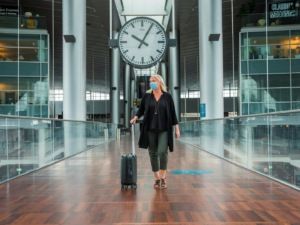News
Copenhagen performs well in COVID-19 City Safety Ranking report
This article is more than 4 years old.
The Danish capital scored particularly high marks within the realm of economy resiliency and government efficiency

Scoring better than most (photo: Visit Copenhagen)
According to the new report ‘ COVID-19 City Safety Ranking Q2/2021’, Copenhagen has done well in regards to responding to the COVID-19 pandemic.
Produced by Deep Knowledge Group – a consortium of commercial and non-profit organisations active in GovTech, BioTech, FinTech, and SpaceTech – the report ranked Copenhagen 15th overall.
“It has weathered the COVID-19 crisis with a relatively low rate of infection and death. The contributing factors for the success included a rapid response from the government, trust, and a high level of confidence in the government by Danish citizens,” the report found.
“In addition, Danish health care accessibility and high-quality free public health services are an effective basis for containing the spread of infection.”
The report also underscored that Denmark’s wealthy society was more resilient to challenges presented by the pandemic.
READ ALSO: Copenhagen ranked fourth on world’s best cities list
A+ for Abu Dhabi
Delving deeper into the report reveals that Copenhagen scored well particularly in the two key parameters of Economy Resilience (8th) and Government Efficiency (2nd).
Meanwhile, it ranked 35th in Healthcare Management, 28th in Quarantine Efficiency and 19th in Vaccination Rate.
Overall, it was Abu Dhabi that took the plaudits, coming in first ahead of Singapore, Seoul, Tel Aviv and Dubai, while Toronto, Sydney, Zurich, Dublin and Ottawa rounded out the top 10.
Find your home city by checking out the open-access report here (in English).










































